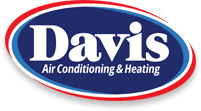How Your HVAC Filters Affect Your System’s Efficiency in Houston, TX
Everyone wants to get the most out of their HVAC system. When considering the factors that affect HVAC system efficiency, most think of components like fans, blower motors or thermostats, not realizing that simple air filters also play a significant role. Here’s what homeowners in Houston, TX need to know about how HVAC filters influence system performance.
Don’t Forget to Change Your Filters
The primary key to consistently high HVAC system efficiency is proper airflow. The moment your system is no longer able to circulate air properly for any reason, general effectiveness begins to decline. This may happen because the system can no longer exchange heat between indoor and outdoor air adequately or for some other reason.
When all is normal, flowing air should pass through your HVAC system’s air filter, deposit debris and pollutants on its mesh and then circulate as required. If your system’s filter is old and loaded with accumulated debris, however, less air makes it through the filter, and what air makes it through gets dirtier. Therefore, dirty air filters impede your HVAC system’s ability to manage temperatures and can compromise your indoor air.
The solution to this problem is to regularly clean or replace old and dirty air filters. HVAC industry professionals recommend that everyone replace their filters at least once every 90 days or so. For most basic air filters, an easy way to tell if it’s time for a change is to look at the filter; if you can’t see through it, you need a new one.
MERV Ratings and Filter Efficiency
All air filters have MERV, or Minimum Efficiency Reporting Value, ratings. These ratings run from 1 all the way up to 20 and specify both the minimum size of particulate matter that a filter can capture and the percentage of such matter that it can remove from the air.
Most residential HVAC systems can only handle filters with MERV ratings between 1 and 13. Beyond this point (like with HEPA filters), the filter mesh becomes so fine that it can actually hinder the flow of air, forcing your HVAC system to use more power and push air harder in order to restore ordinary circulation levels. Using a filter not intended for your home’s system might result in you needing a tune-up.
Filters with MERV ratings greater than 13 can end up actually decreasing your HVAC system’s efficiency. You should only fit the system with filters at MERV 13 or higher after you’ve consulted with a professional and determined that such action is appropriate. Most home HVAC system aren’t able to accommodate high MERV-rated filters. You should follow the manufacturer’s recommendations for your specific system.
Filter Types and Designs
In addition to the basic advice given above on filter upkeep, the kinds of filters you use also matter. There are five broad types of HVAC filters.
Fiberglass filters are the simplest and least expensive type, causing the least strain on your machine. However, while they are good for keeping out large, damaging particles, they are not especially effective at capturing dust or smaller contaminants. Pleated air filters have cotton or polyester folds, are slightly more expensive and are better at capturing dust, pollen, mold spores and the like than fiberglass filters.
Electrostatic filters use static electricity to trap pollutants and typically have MERV ratings of between 3 and 8. HEPA and ULPA filters all have MERV ratings of 17 or higher and will trap particles that are smaller than 1 micron in diameter at rates well above 99%. HEPA filters are typically used in commercial settings like hospitals.
Filters are a critical part of your HVAC setup, and neglecting them carries great costs. To get comprehensive care for the filters in your system, call Davis Air Conditioning & Heating and ask for our HVAC services in the Houston, TX area.
Image provided by iStock
You May Also Like

Should I Repair or Replace My Furnace in Houston, TX?
The mercury’s dropped, your furnace is making strange sounds, and you’re wondering whether to nurse it back to health or send it… Continue Reading Should I Repair or Replace My Furnace in Houston, TX?…

How Mechanical Ventilation Boosts Indoor Air Quality
The air inside your Sugarland, TX, home changes drastically during the holiday season. As temperatures dip and windows stay sealed tight, indoor… Continue Reading How Mechanical Ventilation Boosts Indoor Air Quality…

Why Are Heat Pumps With Greenspeed Intelligence So Efficient?
As Angleton, TX, homeowners crank up their heating systems for cooler weather, energy bills threaten to climb faster than Gulf Coast humidity… Continue Reading Why Are Heat Pumps With Greenspeed Intelligence So Efficient?…
